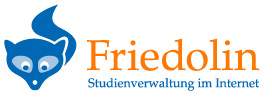| Name des Moduls | [310990] Climate, Sustainable Development, and Innovation | Bezeichnung des Moduls | MW22.7 |
| Studiengang | [184] - Wirtschaftswissenschaften | ECTS Punkte | 6 |
| Arbeitsaufwand für Selbststudium | 120 | Häufigkeit des Angebotes (Modulturnus) | jedes 2. Semester (ab Sommersemester) |
| Arbeitsaufwand in Präsenzstunden | 60 | Dauer des Moduls | 1 |
| Arbeitsaufwand Summe (Workload) | 180 | ||
| Modul-Verantwortliche/r | Prof. Dr. Andreas Freytag, Prof. Dr. Matthias Menter (Jun.-Prof.) |
| Voraussetzung für die Vergabe von Leistungspunkten (Prüfungsform) | After announcement at the beginning of the semester, the examination consists of (A) a written exam during the examination period (100%, 60 minutes) or (B) a written exam during the examination period with inclusion of an assessed exercise during the lecture period. In case (B) both parts have to be passed individually. The overall grade results from the weighted sum of the individual grades. The weighting of the written exam (approx. 60%) and the exercise (approx. 40%) for the overall grade will be explained in detail at the beginning of the semester. The duration of the written exam will be reduced proportionally. A retake option is offered only for the written exam. |
| Empfohlene Literatur | to be announced in the course |
| Unterrichtssprache | Englisch |
| Art des Moduls (Pflicht-, Wahlpflicht- oder Wahlmodul) | 684 M.Sc. Economics: Wahlpflichtmodul |
| Zusammensetzung des Moduls / Lehrformen (V, Ü, S, Praktikum, …) | Lecture (2 h per week), Exercise (2 h per week) |
| Inhalte | The course deals with climate policy issues from an environmental, resource, and innovation economics perspective. Approaches to solving environmental problems on a regional, national, and international level are discussed and political instruments of climate policy are explained. Additional focus is laid upon the efficient use of non-renewable resources as well as upon sustainable development. |
| Lern- und Qualifikationsziele | Students are trained in understanding environmental, resource and innovation economics. This enables them to understand and critically examine theoretical models, applied methods and results in the literature. In addition, students are trained to apply theoretical arguments and empirical evidence to the current debate in climate policy and related policy areas. |


